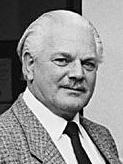
Gary John Joseph Humphries is a Deputy President of the Administrative Appeals Tribunal. He was a member of the Australian Senate representing the Australian Capital Territory for the Liberal Party of Australia from 2003 to 2013. He was the Chief Minister of the Australian Capital Territory from 2000 to 2001; and was elected to the first parliament of the Australian Capital Territory, in 1989, later representing the Molonglo electorate until 2003.
Rosemary Follett is a former Australian politician who was the first Chief Minister of Australian Capital Territory, serving in 1989 and again between 1991 and 1995. She was the first woman to become head of government in an Australian state or territory.

Katherine Ruth Gallagher is an Australian politician who has been serving as the Minister for Finance, Minister for Women, Minister for the Public Service and Vice-President of the Executive Council in the Albanese Government since 2022, and formerly served as the 6th Chief Minister of the Australian Capital Territory from 2011 to 2014. She has been a Senator for the Australian Capital Territory since the 2019 federal election, as a member of the Australian Labor Party (ALP). She previously served in the Senate from 2015 to 2018.
Residents Rally was an Australian political party, with four candidates elected to the first Australian Capital Territory Legislative Assembly at the 1989 Australian Capital Territory general election. Residents Rally were led by Canberra human rights barrister and lawyer, Bernard Collaery. Collaery defined the party as "a community-based urban green party". The Rally formed a coalition with the Liberal Party, led by Trevor Kaine, in late 1989. However, this fractious Alliance was to last for only two years before collapsing. The Rally was unsuccessful in retaining any seats at the 1992 ACT general election.

Trevor Thomas Kaine, was an Australian politician who served as Chief Minister of the Australian Capital Territory from 1989 to 1991. Kaine was elected into a multi-member single electorate in the unicameral Australian Capital Territory Legislative Assembly, from 1989 to 2001, initially as a member of the Liberal Party and later as an independent.
Elections to the 1989 Australian Capital Territory Legislative Assembly was held on Saturday, 4 March. This was the first direct election by voters in the Australian Capital Territory (ACT) for their power legislative body.
Wayne Bruce Berry, former Australian politician, was a member of the unicameral Australian Capital Territory Legislative Assembly from 1989 to 2008, representing the electorate of Ginninderra for the Labor Party. Berry served as Deputy Chief Minister from 1991 to 1994, Leader of the Opposition from 1997 to 1998 and Speaker of the Assembly from 2001 to 2008.
The Australian Capital Territory House of Assembly was the main elected representative body of the Australian Capital Territory between 1975 and 1986, during which time preparation began for the granting of self-government to the Territory. The Assembly had a largely advisory role, with most of the power over the Territory being in the hands of the relevant federal minister.
Craig John Duby, former Australian politician, was a member of the unicameral Legislative Assembly of the Australian Capital Territory between 1989 and 1992, elected to the multi-member single constituency Assembly as a representative of the No Self-Government Party. During his term in office, Duby was a member of the Independents Group and the Hare-Clark Independence Party. Duby was the Minister for Finance and Urban Services and briefly was the Minister for Housing and Community Services in the Kaine ministry. For part of one day, he served as the Leader of the Opposition.
The First Carnell Ministry was the fifth ministry of the Government of the Australian Capital Territory, and was led by Liberal Chief Minister Kate Carnell and her three successive deputies, Tony De Domenico, Gary Humphries and Trevor Kaine. It was sworn in on 15 March 1995 after Carnell led the Liberal Party to its first ever election victory in the 1995 Australian Capital Territory general election.
Paul Russell Whalan is an Australian political lobbyist, former politician and member of the first Australian Capital Territory Legislative Assembly, representing Canberra for the Labor Party. Whalan was elected in 1989 and resigned from the Assembly on 30 April 1990. During his short term in the Assembly, Whalan served as the first Deputy Chief Minister and the first Minister with responsibilities for industry, employment and education in the first ACT Government led by Rosemary Follett.
The First Follett Ministry was the first ministry of the Government of the Australian Capital Territory, and was led by Labor Chief Minister Rosemary Follett and her deputy, Paul Whalan. It was sworn in on 16 May 1989, after the 1989 election when a hung parliament was the outcome. Labor, with a plurality of seats, led a minority government in the Australian Capital Territory Legislative Assembly.
The Kaine Ministry was the second ministry of the Government of the Australian Capital Territory, and was a coalition led by Liberal Chief Minister Trevor Kaine and his deputy, Residents Rally party leader Bernard Collaery. It was sworn in on 5 December 1989, when Collaery moved the following motion:
The Second Follett Ministry was the third ministry of the Government of the Australian Capital Territory, and was led by Labor Chief Minister Rosemary Follett and her deputy, Wayne Berry. It was sworn in on 18 June 1991, after a successful resolution of no confidence in the Trevor Kaine led Liberal Party was passed in the Australian Capital Territory Legislative Assembly. Following the 1989 ACT general election, Labor, with a plurality of seats, led a minority government following the failure of an Alliance government between the Liberals and Residents Rally.

Yvette Simone Berry is an Australian politician and Deputy Chief Minister of the Australian Capital Territory. She has been a Labor Party member for the seat of Ginninderra in the ACT Legislative Assembly since the 2012 ACT election. Berry is the daughter of Wayne Berry who was a Member of the ACT Assembly for Ginninderra from 1989 to 2008, Deputy Chief Minister from 1991 to 1994, Opposition Leader from 1997 to 1998 and Speaker from 2001 to 2008. Berry is the first family member of a current or previous member to be elected to the ACT assembly.
The ACT Labor Party, officially known as the Australian Labor Party (Australian Capital Territory Branch) and commonly referred to simply as ACT Labor, is the ACT branch of the Australian Labor Party (ALP). The branch is the current ruling party in the Capital Territory and is led by Andrew Barr, who has concurrently served as chief minister of the Australian Capital Territory since 2014. It is one of two major parties in the unicameral Australian Capital Territory Legislative Assembly.
The Second Barr Ministry was the 14th ministry of the Government of the Australian Capital Territory, led by Labor Chief Minister Andrew Barr and his deputy Yvette Berry. It was appointed on 1 November 2016, following the 2016 general election held two weeks earlier. The Greens signed a new formal Parliamentary Agreement with Labor which continued to maintain Green's leader Shane Rattenbury's position in the Ministry, whilst mandating that the Greens not move or support any motion of no confidence in the Labor Government, except in instances of gross misconduct or corruption.
The First Barr Ministry was the 13th ministry of the Government of the Australian Capital Territory, and was led by Labor Chief Minister Andrew Barr and his deputy Yvette Berry. It was appointed on 15 December 2014 following the resignation of Katy Gallagher as Chief Minister and the subsequent election of Andrew Barr as her replacement by the Australian Capital Territory Legislative Assembly. Green's Shane Rattenbury continued to serve as a minister for the remainder of the parliamentary term, as part of the Labor-Greens parliamentary agreement signed in 2012 at the start of the term.
The Third Barr Ministry is the 15th ministry of the Government of the Australian Capital Territory, led by Labor Chief Minister Andrew Barr and his deputy Yvette Berry. It was appointed on 4 November 2020 to replace the Second Barr Ministry, following the 2020 general election held two weeks earlier.







